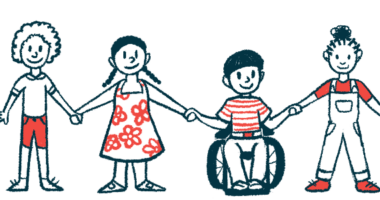UK Surveys Assess Impact of COVID-19 and Its Vaccines

Vaccines for COVID-19 are generally safe for children with Dravet syndrome, and are unlikely to cause an increase in the frequency of seizures, whereas COVID-19-like disease often increases seizure frequency, according to a pair of surveys done in the U.K.
Since the start of the pandemic, researchers have been working to understand how COVID-19 tends to affect people with underlying health conditions.
In June and July of 2020, a team led by scientists at Dravet Syndrome UK (DSUK) conducted a survey to try to understand how COVID-19 itself affects people with Dravet syndrome. Results were published in the study, “The impact of COVID-19 in Dravet syndrome: A UK survey,” in Acta Neurologica Scandinavica.
A total of 116 responses to the survey were collected, representing 86 children and 30 adults with Dravet syndrome. Most of these patients (91%) sheltered at home during lockdown.
Among the patients, 22 (19%) reported symptoms that are indicative of COVID-19, such as a high fever, coughing, or shortness of breath. Four of these symptomatic patients underwent a PCR swab test, but all were negative for COVID-19. One patient underwent an antibody test and was positive for COVID-19. The lack of regular testing in the surveyed patients was a noted limitation of the study.
Also of note, one patient who had been hospitalized for kidney failure tested positive for COVID-19 on several occasions throughout the hospitalization, though he showed no symptoms typically associated with COVID-19. His kidney failure predated the first positive COVID-19 test by several weeks, and was attributed to a reaction to epilepsy medications.
Of the 22 patients who had COVID-19-like symptoms, five had more-frequent and longer seizures while they were sick, and six had more-frequent seizures without a change in how long the seizure lasted.
“In 50% of people with DS [Dravet syndrome] who developed possible or probable COVID-19 symptoms, seizure worsening was reported, in terms of seizure frequency or duration or both,” the researchers wrote.
Nine patients with COVID-19-like symptoms required some form of medical attention during their illness, but there were no reported deaths. The researchers noted that all the cases with serious symptoms were children.
“We could cautiously conclude that DS may not put affected individuals at increased risk of severe outcomes … assuming that shielding and other infection prevention and controls are put in place,” the team concluded.
Vaccines for COVID-19 have been shown to be extremely safe and highly effective at preventing severe disease in the general public, but there has been uncertainty regarding their safety and efficacy in rare conditions like Dravet syndrome. Notably, vaccines (in general) have been reported to precipitate seizures in epileptic conditions such as Dravet syndrome, though they do not alter the course of the disease.
A separate survey led by DSUK was conducted in February 2021 to assess attitudes to the COVID-19 vaccines. Results were published in “The impact of SARS-CoV-2 vaccination in Dravet syndrome: A UK survey,” in Epilepsy & Behavior.
Of 35 responses, 13 (37%) caregivers said they were “concerned” or “very concerned” about giving a COVID-19 vaccine to someone with Dravet syndrome. Notably, 27 of 35 (77%) had not received any advice from a healthcare professional about these vaccines.
“It is crucial that healthcare professionals caring for people with DS are proactive in providing accurate information regarding the risks and benefits of vaccination. This is particularly important in the population with DS, where there may be deep-seated fears surrounding vaccination risk,” the researchers wrote.
Of 18 patients eligible for vaccination when the survey was conducted, nine (50%) had received at least one dose of vaccine. The researchers combined data from these nine patients with data from six individuals with Dravet syndrome followed at centers in the U.K., to better understand how patients tended to respond to vaccines.
Of the 15 patients, 11 reported at least one side effect of vaccination. The most common were fever, fatigue, and pain at the injection site. Three of the 15 patients (20%) experienced an increase in seizure frequency following vaccination. All three had received the Oxford/AstraZeneca vaccine.
“Although the number of survey respondents was small, overall these results suggest that the [COVID-19] vaccines are safe and well tolerated in individuals with DS, as they are in most people without DS,” the scientists concluded.
“In the majority of people with DS, [COVID-19] vaccine does not appear to be associated with an increase in the frequency or duration of seizures, even in those who develop fever post-vaccination,” they added.







